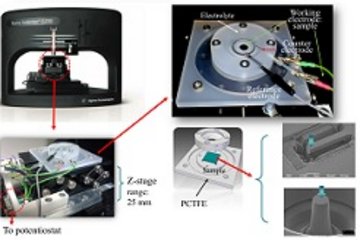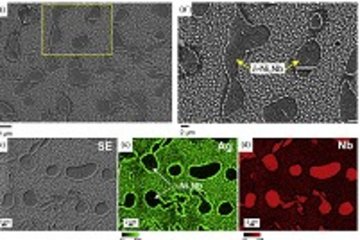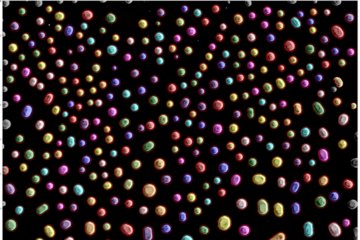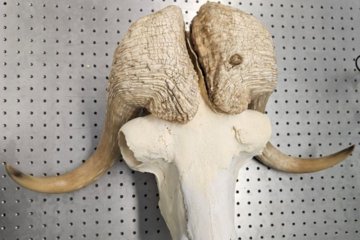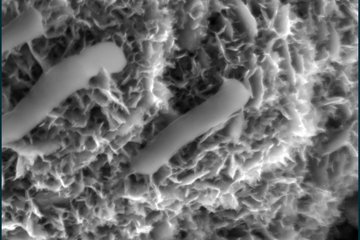All genres
421.
Talk
Computing Ab Initio Free Energy Contributions of Point Defects. 139th Annual Meeting of the Minerals, Metals and Materials Society (TMS), Seattle, WA, USA (2010)
422.
Talk
Towards a First-Principles Understanding of the Iron Phase Diagram. 139th Annual Meeting of the Minerals, Metals and Materials Society (TMS), Seattle, WA, USA (2010)
423.
Talk
First principles calculations of the stacking fault energies for Mn and Fe. Computational Materials Science on Complex Energy Landscapes Workshop, Imst, Austria (2010)
424.
Talk
Chemical trends for the solution enthalpy of hydrogen in 3d transition metals. Computational Materials Science on Complex Energy Landscapes Workshop, Imst, Austria (2010)
425.
Talk
Stacking fault properties in high-Mn steels: An ab initio study. Computational Materials Science on Complex Energy Landscapes Workshop, Imst, Austria (2010)
426.
Talk
Ab initio determination of the magnetic free energy contribution of metallic systems. Computational Materials Science on Complex Energy Landscapes Workshop, Imst, Austria (2010)
427.
Talk
Spin-polarization-induced structural selectivity in substituted Laves phases. Workshop, Imst, Austria (2010)
428.
Talk
Polarization-induced charge carrier separation in realistic polar and nonpolar GaN quantum dots. Computational Materials Science on Complex Energy Landscapes Workshop, Imst, Austria (2010)
429.
Talk
Kinetic Monte Carlo simulations and ab initio studies of nano-precipitation in ferritic steels. Computational Materials Science on Complex Energy Landscapes Workshop, Imst, Austria (2010)
430.
Talk
First principles study of thermodynamic, structural and elastic properties of eutectic Ti-Fe alloys. Computational Materials Science on Complex Energy Landscapes Workshop, Imst, Austria (2010)
431.
Talk
Ab initio up to the melting point: Efficient sampling strategies of anharmonic free energies. Computational Materials Science on Complex Energy Landscapes Workshop, Imst, Austria (2010)
432.
Talk
Ab initio simulation of magnetic shape memory alloys: The interplay of magnetic and vibrational degrees of freedom. Oberseminar: Ultraschnelle Dynamik in Festkörpern und an Grenzflächen, Fakultät für Physik, Universtität Duisburg-Essen, Duisburg, Germany (2010)
433.
Talk
Simulation tools for ab initio steel design. CM Special Workshop on "Ab initio Description of Iron, Steel and Related Materials", MPIE, Düsseldorf, Germany (2009)
434.
Talk
Wasserstoff in X-IP Stahl (ab initio): Einfluss von Defekten auf die Energetik und Dynamik von Wasserstoff in Manganstählen. X-IP Workshop, Dortmund, Germany (2009)
435.
Talk
Ab Initio Interfacial Austenite/Martensite Energies for Accurate Stacking Fault Energy Calculations in High-Mn Steels. Materials Research Society 2010 Fall Meeting, Boston, MA, USA (2009)
436.
Talk
Ab initio up to the melting point: Anharmonicity and vacancies in aluminum. MRS Fall Meeting, Boston, MA, USA (2009)
437.
Talk
Polarization-induced charge carrier separation in realistic polar and nonpolar grown GaN quantum dots. Collaborative Conference on Interacting Nanostructures CCIN'09, San Diego, CA, USA (2009)
438.
Talk
Ab initio investigation of temperature dependent effects in magnetic shape memory Heusler alloys. SPP1239 Fokustreffen A "Fundamentals", Bonn, Germany (2009)
439.
Talk
Quantum mechanically based modeling of temperature driven materials phenomena. Colloquium "Material Science on Supercomputers", MPIE, Düsseldorf, Germany (2009)
440.
Talk
Considerations on the magnetic contribution to the free energy of Fe and related alloys. MCA-Fe. International workshop "Modern computational approaches in iron based alloys”, Ekaterinburg, Russia (2009)




